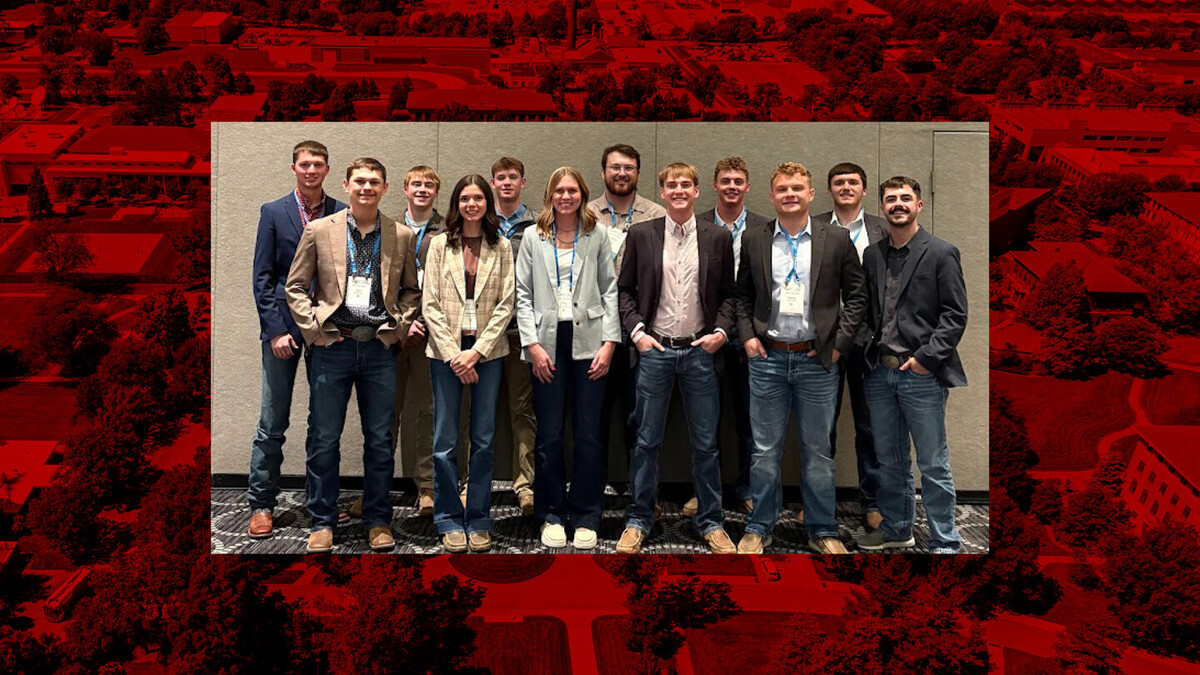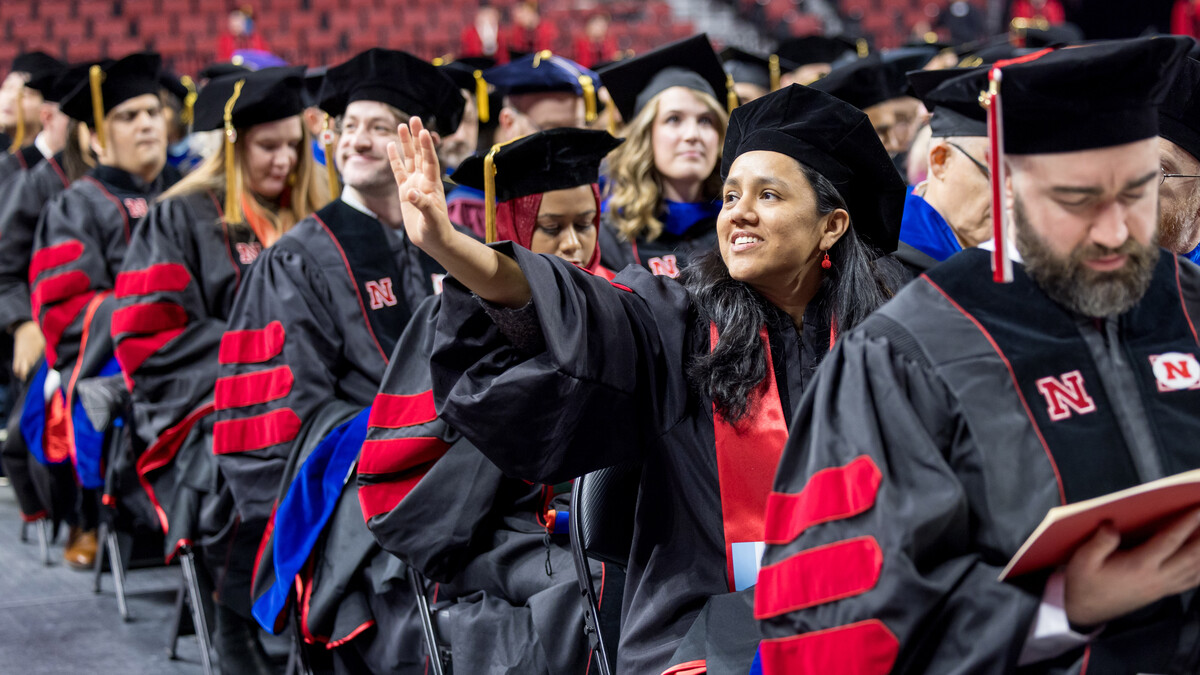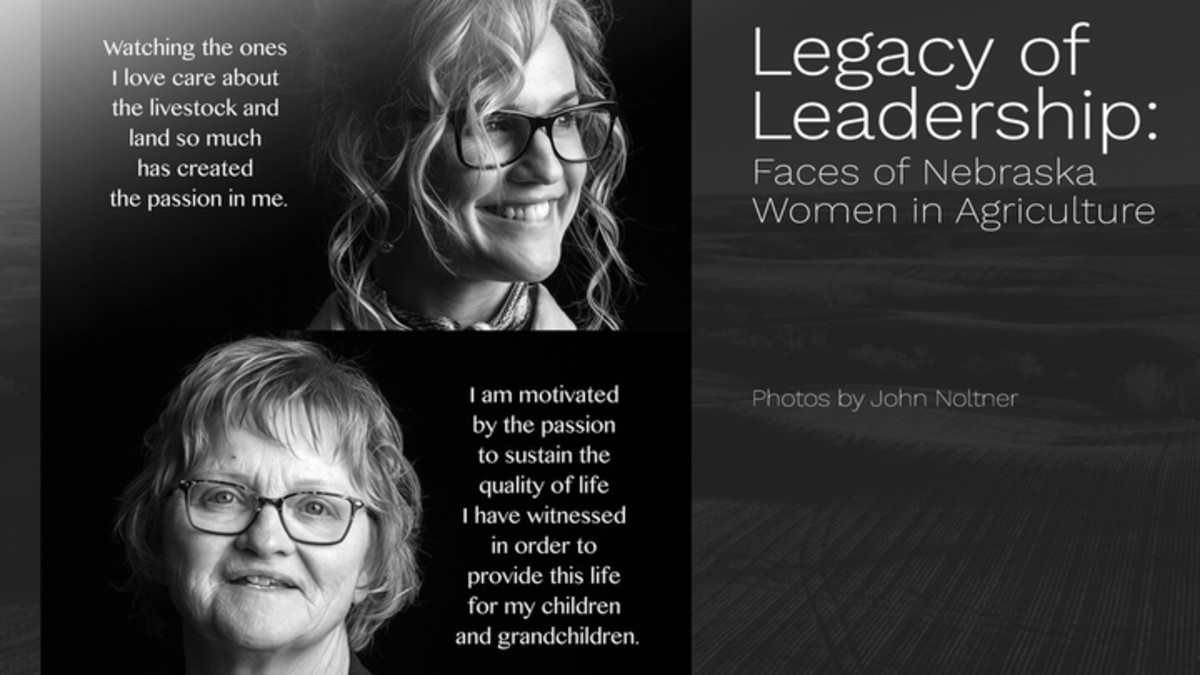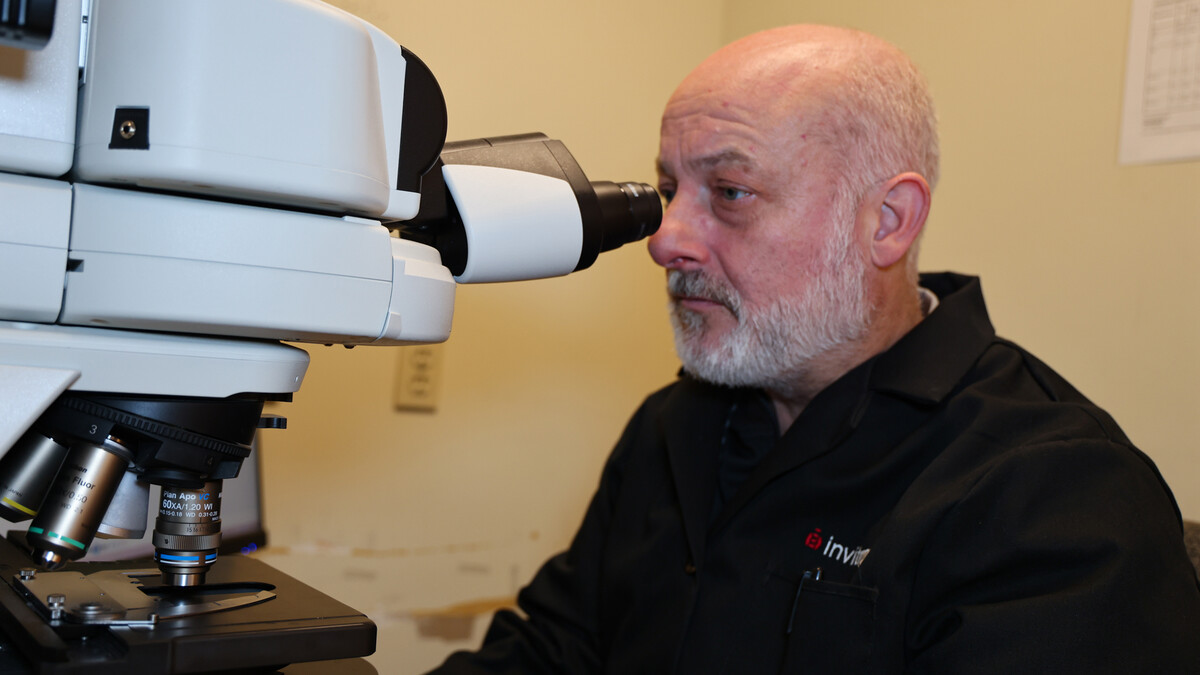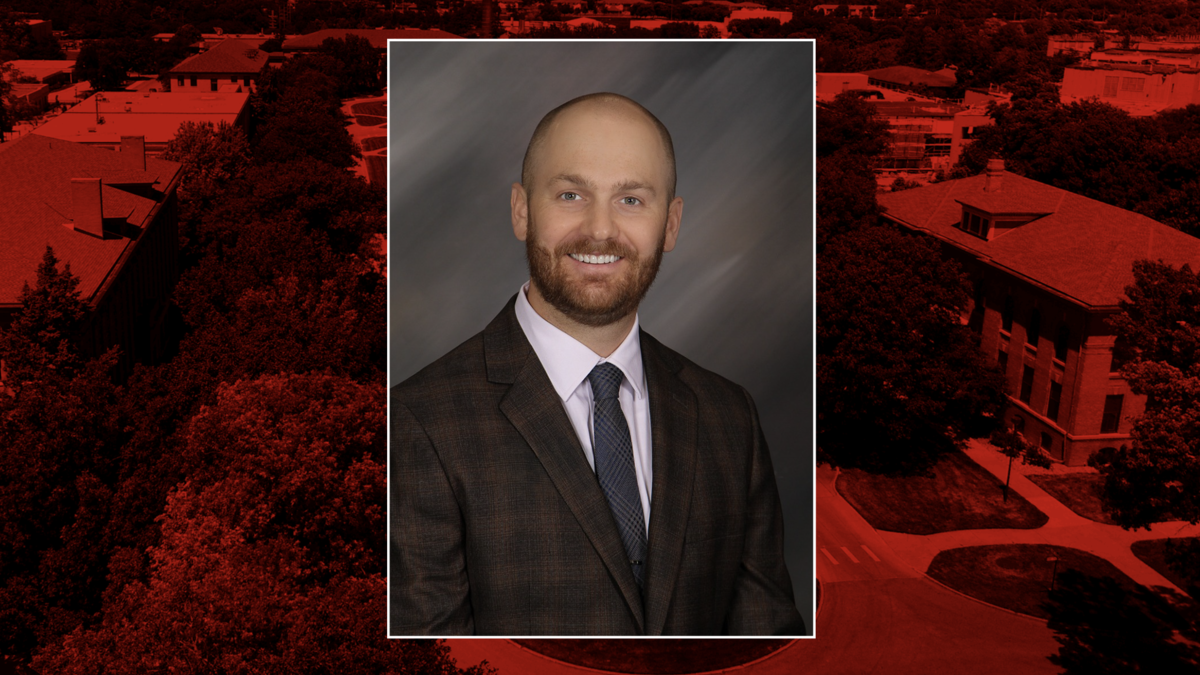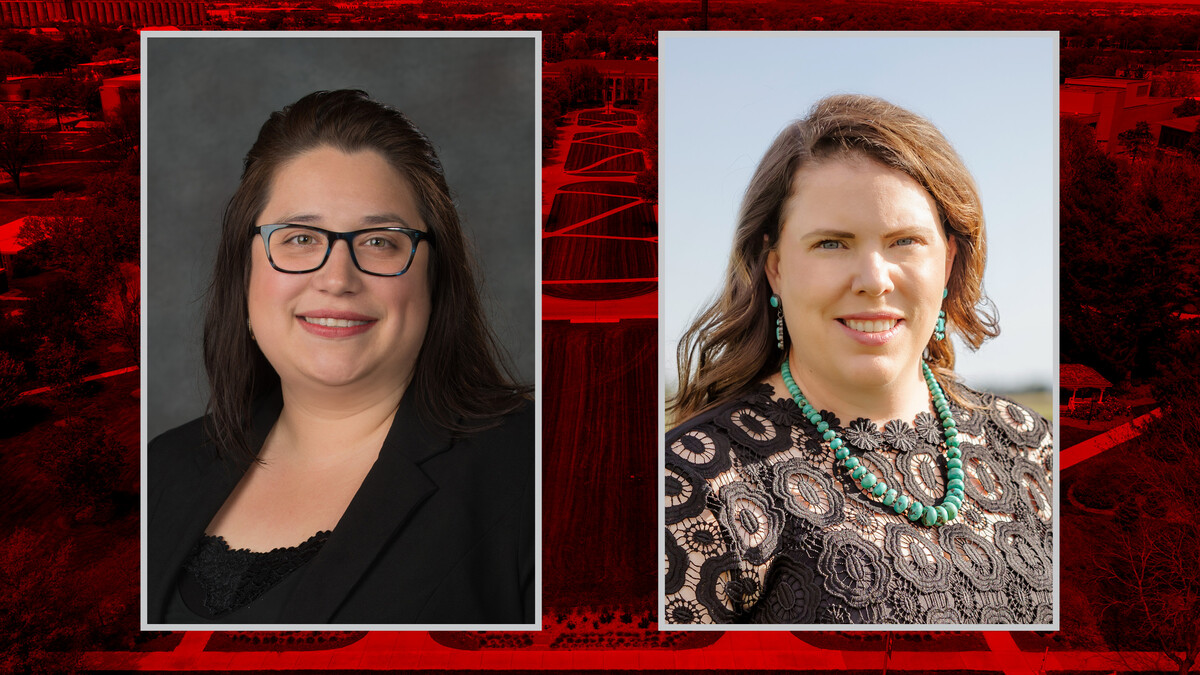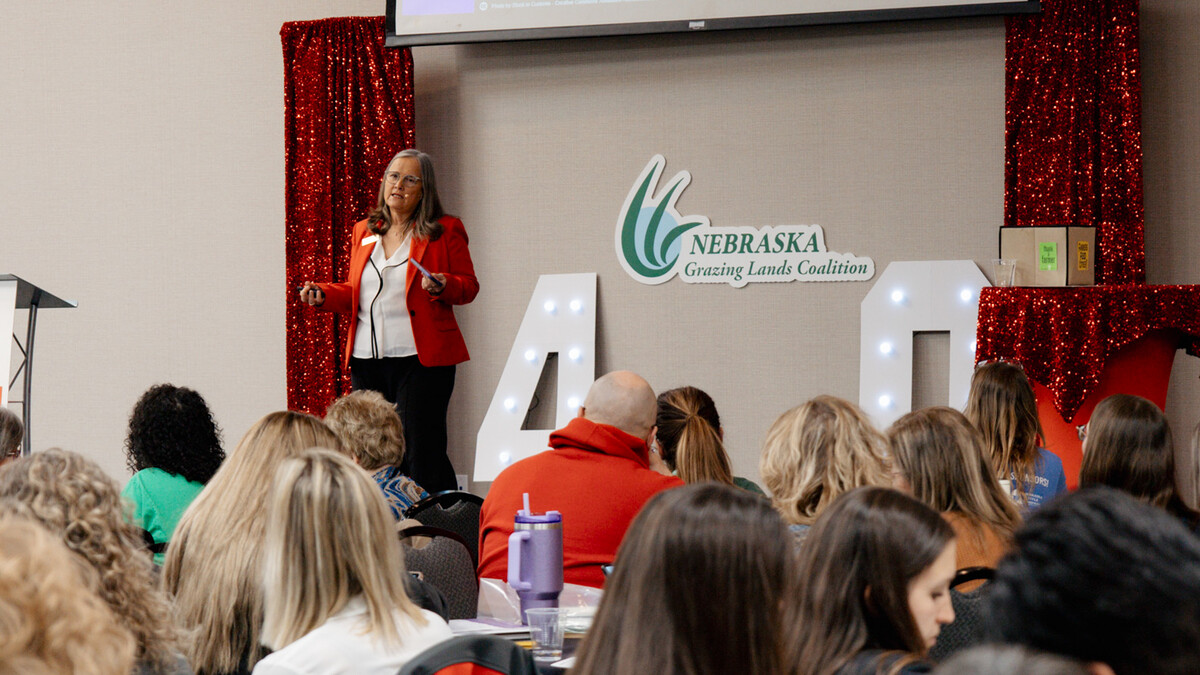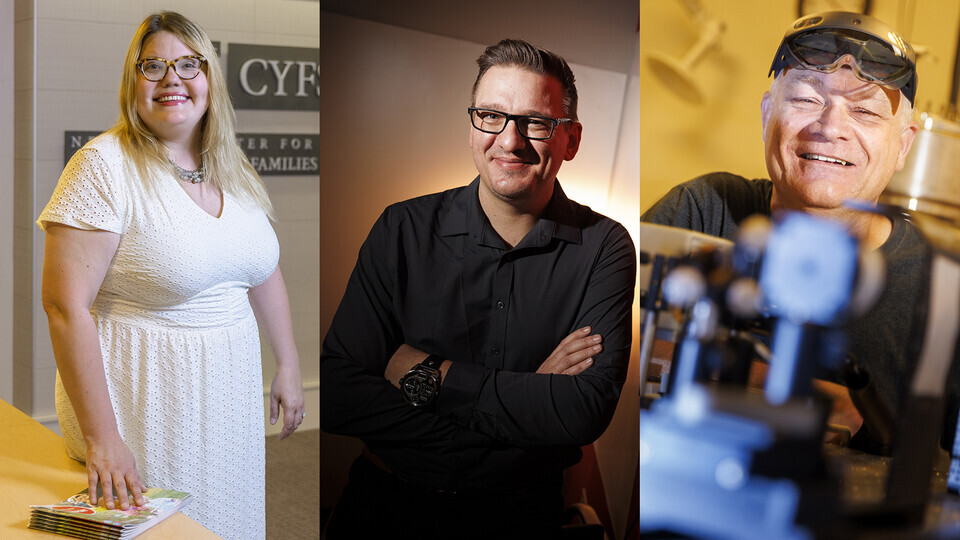
Lincoln, Neb. —Innovative research proposals aimed at preventing sexual violence among indigenous youth, replicating the human immune system, and exploring quantum phenomena have earned funding through the University of Nebraska–Lincoln’s first Grand Challenges Catalyst Competition.
Organized by Chancellor Ronnie Green and Bob Wilhelm, vice chancellor for research and economic development, the awards are part of a $40 million commitment to fund work that directly connects to the university’s Grand Challenges initiative.
Announced Aug. 30, this initial phase includes 13 awarded projects — three lead “Catalyst” awards and 10 planning grants — and represents a $10 million investment.
“These awards reflect our university’s commitment to doing big things,” Chancellor Ronnie Green said. “I applaud each of our faculty who participated. You have opened doors to new possibilities, coming together to leverage individual strengths and solve big, overarching issues that are important to Nebraska and the world.”
Teams receiving Catalyst awards will be led by Katie Edwards, associate professor of educational psychology; Tomas Helikar, associate professor of biochemistry; and Kees Uiterwaal, associate professor of physics and astronomy.
Through the catalyst competition, faculty were challenged to imagine how their research, scholarship, creative activity and outreach activities intersect with the challenge areas and to identify unique problems they could work across disciplines to help solve.
Catalyst awards
Center to Prevent Sexual Violence Among Indigenous Youth
Craig Chandler | University Communication and Marketing Katie Edwards, professor of educational psychologyKatie Edwards will lead a team of more than 20 Nebraska researchers, and representatives from tribal organizations, other institutions, and community partners to establish and evaluate an indigenous-led center dedicated to preventing sexual violence among indigenous youth. Focusing on an issue that has reached crisis levels, the center will work to reduce sexual violence in all indigenous communities nationwide. The team aims to deliver innovative, empowerment-based and culturally grounded violence prevention programs to a majority of the 1.5 million Native American youth in the U.S. by 2050. The project received a four-year, $3,210,177 grant through the Grand Challenges initiative.
Digital Twin Innovation Lab
Craig Chandler | University Communication and Marketing Tomas Helikar, associate professor of biochemistryNearly every industry that deals with complex data uses digital twin technology — a simulatable computer replica of a real-world system. The team led by Tomas Helikar aims to apply this concept to create a digital twin of the human immune system. No large-scale digital twin of any human biological system exists, but the U.S. Food and Drug Administration announced recently that it would consider supplementing or replacing clinical trials with models simulated on virtual patients. The team is developing infrastructure to help visualize the complexity of the immune system using state-of-the-art computing and artificial intelligence. The project includes eight researchers and 16 additional partners and advisers. The project received a five-year, $5,039,652 grant through the Grand Challenges initiative.
Quantum Business, Arts and Science for Society
Craig Chandler | University Communication and Marketing Kees Uiterwaal, associate professor of physics and astronomyScience literacy is a pervasive challenge, with understanding the complexity of quantum sciences being one example. Through “Quantum Business, Arts and Science for Society” — or Q-BASS — Kees Uiterwaal will lead a team of artists, physicists and education researchers to improve science communication through mixed reality — an interactive, computer-based experience that inserts three-dimensional objects into the viewer’s field of vision. The project aims to build two physics labs outfitted with augmented reality technology and open them to students and teachers; create an interactive, immersive arts installation; and conduct research on students’ understanding of quantum phenomena. The team will explore startup potential based on the research outcomes. Five co-investigators, an external partner and an advisory board will guide the work. The project received a two-year, $629,692 award through the Grand Challenges initiative.
The Catalyst projects were selected with input provided through a rigorous external review process coordinated by the Implementation Group, a research development firm specializing in competitive proposal development and team science.
Ten additional proposals were awarded planning grants through the competition. The awards support teams that are developing project ideas around one or more themes. The planning grants are intended as a springboard for aspirational projects that are expected to compete for future Catalyst awards.
Planning Grant awards
-
Tala Awada, professor of natural resources, “A Nebraska Circular Agriculture Hub for the 21st Century.”
-
Yufeng Ge, professor of biological systems engineering, and Santosh Pitla, associate professor of biological systems engineering, “SPACE2: Space, Policy, Agriculture, Climate and Extreme Environment.”
-
Mark Griep, professor of chemistry, “Midwest Science Engagement Consortium.”
-
David Harwood, professor of earth and atmospheric sciences, “Ice Coring and Education Silo.”
-
Jennifer Lather, assistant professor of architectural engineering, “Serving At-risk Communities in Disasters: Studying Planning and Response Measures under the Lens of Equity.”
-
Liz Lorang, associate professor in the University Libraries, “Machine Learning, Artificial Intelligence and Cultural Heritage for Science and Technology Literacy and to Advance Anti-racist Information Systems.”
-
Anne Schutte, associate professor of psychology, and Nicolas Hubbard, assistant professor of psychology, “Advancing Cutting-Edge Research and Practices to Increase Access and Use of Green Space and Outdoor Play in Early Childhood Settings.”
-
Elizabeth VanWormer, associate professor of veterinary medicine and biomedical sciences, “Nebraska One Health: Building a Flexible Network Approach to Complex Systems Challenges that Matter for Human, Animal and Planetary Health.”
-
Ana María Vélez Arango, assistant professor of entomology, “RISE with Insects (Resilience Ignited through Science and Ethics).”
-
Sarah Zuckerman, associate professor of educational administration; Trey Andrews, associate professor of psychology and ethnic studies; Virginia Chaidez, associate professor of nutrition and health sciences; and Megan Kelley, assistant professor of nutrition and health sciences, “Nebraska Community Action Research for Equity and Sustainability (NE CARES) Hub.”
Planning grants were selected through an internal review process. Review panels were composed of volunteers that included current faculty, emeriti faculty and additional staff.
This initial round of awards encompass all seven thematic areas of the Grand Challenges: anti-racism and racial equity; climate resilience; early childhood education and development; health equity; quantum science and engineering; science and technology literacy for society; and sustainable food and water security.
More than 180 members of the university community are involved in the funded projects, and all nine colleges are participating in at least one project.
“I am proud that the proposals selected for this year’s Grand Challenges competition reflect the spirit and priorities of our institution,” Wilhelm said. “Our faculty rose to the challenge of thinking boldly, going beyond their disciplines and finding new pathways to carry out their work. The entire process was invigorating. I’m looking forward to seeing the many ways this initiative enables our university’s work to have a greater impact on our community, state and world.
“Congratulations to all who participated in the first cycle of our Grand Challenges process. Soon we will start cycle two of this program with more projects funded in 2023, and even more in 2024 and 2025.”
The Office of the Chancellor and the Office of Research and Economic Development have committed up to $40 million over four years to invest in the Grand Challenges initiative. The project aligns with the university’s N2025 aims to increase the impact of research and creative activity, and to foster interdisciplinary endeavors.
A request for proposals for the 2023 Grand Challenges grant cycle will be released by Oct. 3. The Office of Research and Economic Development will also host a slate of events to help faculty prepare for the next Catalyst awards competition. Details will be announced on the Grand Challenges website.

